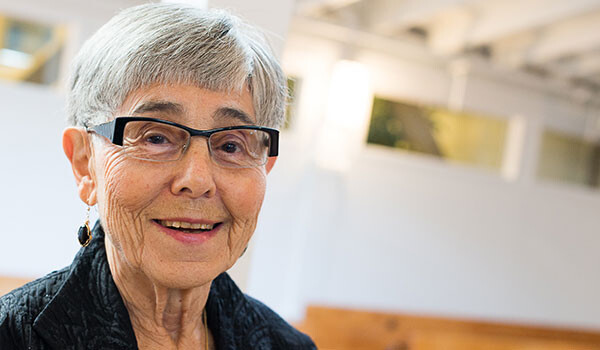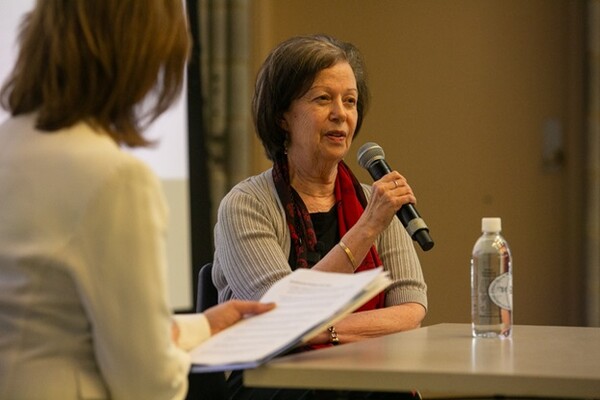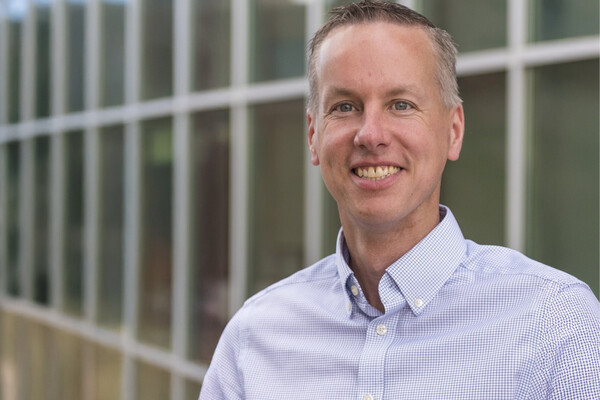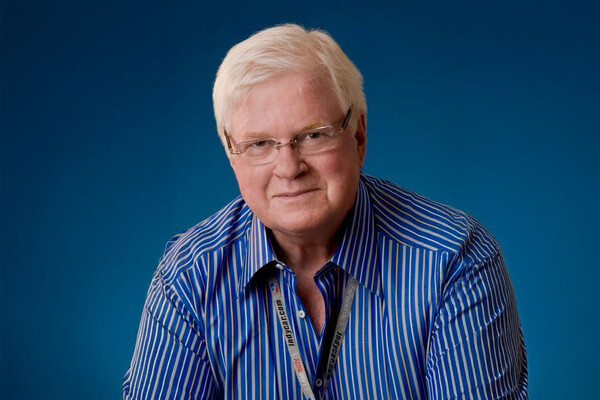Main Second Level Navigation
Breadcrumbs
- Home
- News & Events
- Recent News
- Women's Health Trailblazer: Dr. May Cohen, MD'55
Women's Health Trailblazer: Dr. May Cohen, MD'55

Dr. May Cohen was born in Montreal and grew up in Toronto. May studied medicine at the University of Toronto and graduated at the top of her class winning the gold medal in 1955. When the Government of Canada declared 1975 the ‘Year of the Woman’, May began to see the connections between women’s health, human sexuality, and formed the realization that reproductive health was related to both a lack of education regarding human sexuality and autonomy of women in Canadian society.
There was no concept of ‘women’s health’ and ‘men’s health’ at the time... to my amazement I learned that the locals could not get the doctors there to do breast exams or pap smears.
In 1977, May and and her husband Gerry were both appointed to the Department of Family Medicine at McMaster University in Hamilton. In 1988, they them took a sabbatical and travelled all across Australia giving seminars to doctors on how to discuss human sexuality with their patients. After they returned to Canada, May spearheaded the development of a Women’s Health Office at McMaster to look at education and research in the field of women’s health. This eventually led to a partnership with the other like-minded academics in the other five Ontario medical schools they called themselves WHISCC (Women's Health Inter School Curriculum Committee) to “whisk” out sexism in medical practice. Now a unified group, they set forth to educate about and advocate for women’s health care by looking at diseases that were more common or more serious in women and where the outcomes or the therapy were different. It was not just reproductive health. This work on women's health eventually lead to the establishment of a Genders Issue Committee at Council of Ontario Facutlies of Medicine and later at the Association Faculties of Medicine of Canada.
In 1990-91, May became the national president of the Federation of Medical Women in Canada. From 1991 to 1996 she served the Faculty of Health Sciences as associate dean of Health Services. May is now retired and lives with her husband in Toronto.
What first attracted you to studying medicine at U of T?
My desire to be a doctor goes way back. I always wanted to be in medicine and there is one moment that I remember so clearly. I was on the street car and we drove passed the Western Hospital in Toronto. At that point I had decided to become a nurse because I wanted to have a family, and I figured I couldn’t have a family as a doctor. As we passed the hospital, I remember saying, ‘No, I don’t want to be a nurse I want to be a doctor.’ By the end of grade eight you had to choose which high school you wanted to go to. At that time the choices were either technical collegiate or commercial. Most of the women went to commercial to become secretaries and were often married at eighteen. However, I told my grade eight teacher that I wanted to go to collegiate. She asked why, and I said, ‘I want to be a doctor.’ She looked at me and said, ‘women do not become doctors.’ Despite this discouragement, I was always supported by my family.
What is your fondest memory of being a student at U of T?
Being in the musical play, Daffydil, is one of my fondest memories because it was so much fun. I was in it in my second and third year - I really loved it. I still have the record on vinyl which was a recording of that show.
What was it like to be one of fourteen women in a male dominated profession during the 1950s?
The thing I remember very clearly was that on the first day of medical school the Dean of Medicine, Joseph Arthur MacFarlane came to welcome us and in part of his address he said, “you will wear a tie and shave every day.’ So I said, ‘the fourteen girls in the room could only look at their legs’. There were fourteen young women in my class and we became very close and we didn’t have to spend any time in line for the washroom! We had one clinic group, and usually these groups were for ten people but we were fourteen because it was believed by the powers that be that we could not be in a clinic group with men while looking at unclothed bodies.
The women became very close and that was very nice. However, I do not think we were aware of gender discrimination because it was during a time before the feminist movement. I can remember one time, Dr. Grant who was the anatomy professor, would start every morning with saying “good morning gentlemen.’’. So one day, all fourteen of us girls sat in the front row and he still said “good morning gentlemen.” However, we really were not sensitized to the harm of discrimination. We were proud to be in there because we were sort of trailblazers, not that there weren’t women in medicine before us, but we were part of the ten percent of women allowed into the program. There is a sense of pride.
How did you become involved with women’s health?
My first awareness about women’s health was in 1975 when Canada participated in the International year of the Woman when the government subsidized communities to have workshops on women's health. Betty Stevenson, who was the president of the Canadian Medical Association at that time had been invited to Shelburne, Nova Scotia but didn’t have the time to go so she asked me to go in her place. There was no concept of ‘women’s health’ and ‘men’s health’ at the time, and I believed that if you were a good doctor then you were a good doctor to both. I did a little research and then I went to Nova Scotia and to my amazement I learned that the locals could not get the doctors there to do breast exams or pap smears and there was a fair amount of violence against women. It became clear to me that I did not know whether this was going on in Toronto or elsewhere. Interestingly enough, the people I had met with wrote me a letter after I left saying they now had a doctor from Yarmouth, Nova Scotia who would provide more care to women, including pap smears. This was the very beginning of my involvement in women’s health care. After that I became involved with the pro-choice movement, sparked by the actions of Dr. Henry Morgentaler. I became a member of an organization called Doctors for the Reform of the Abortion Law (DRAL).
What acheivement are you most proud of?
I don’t have a favourite achievement but I guess if I had to choose it would be the recognition that I received when five awards were named in my honour. Also the involvement of so many like-minded people and feeling that I was a real activist. The activism sums up everything I was doing.
Do you have any Words of Wisdom for current U of T students?
In leadership roles or chairing committees, you have to hear what people say and let them know that you’ve heard them, even if you don’t agree with them or they get out voted, they will still feel as though they have been heard which is very important. You have to be disciplined, willing to do your share of the work and be prepared for what you’re doing. Even now, I spend an awful lot of time when I chair the board at my condominium, it takes me two or three hours to get all the material and issues for debate organized so that I know what’s going on.
News


